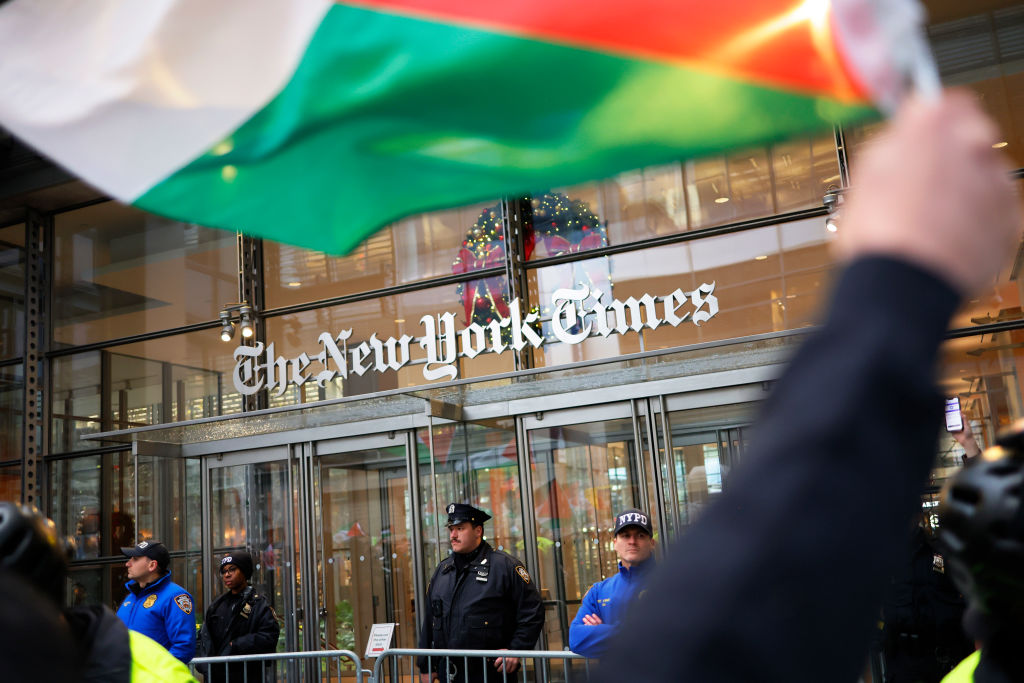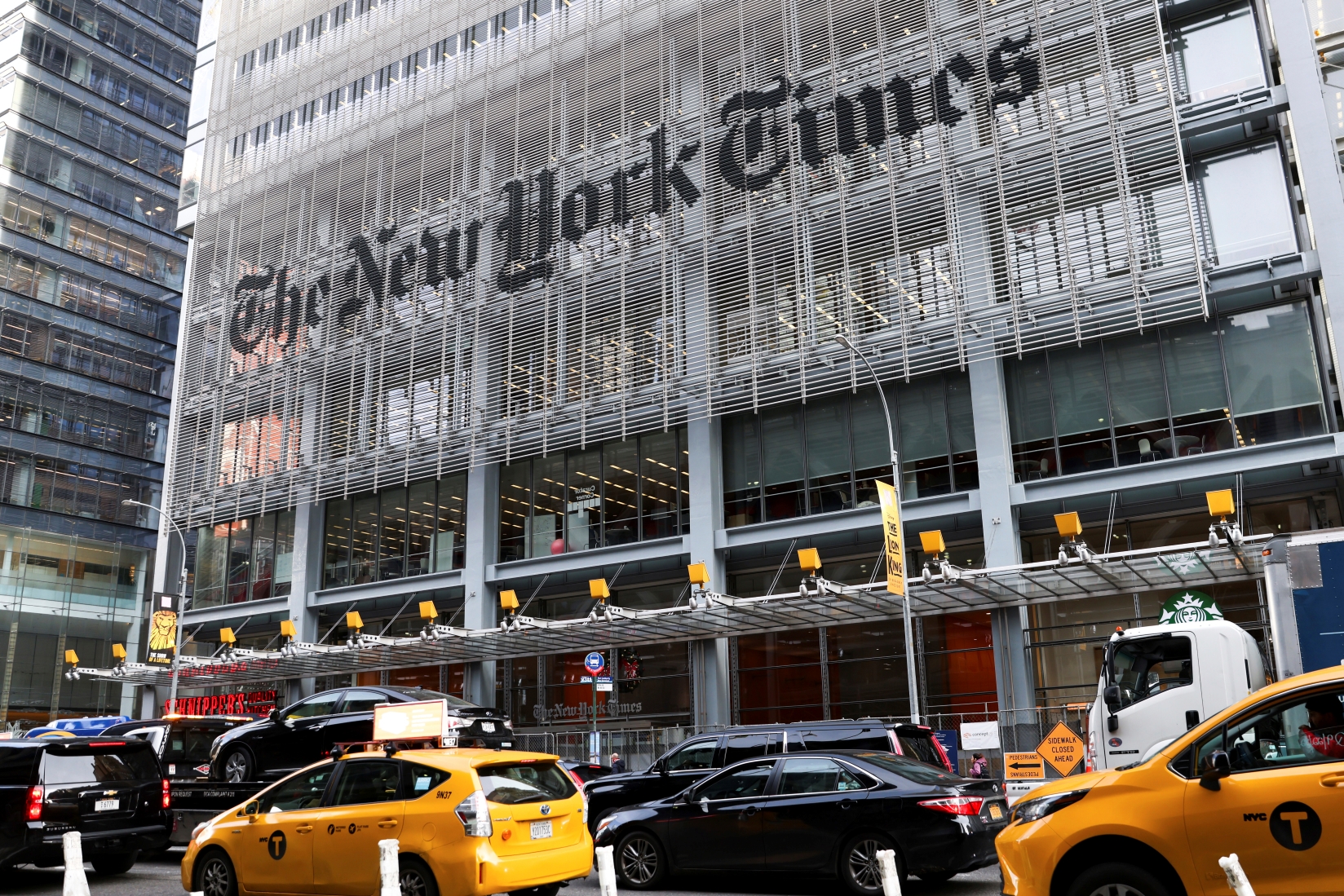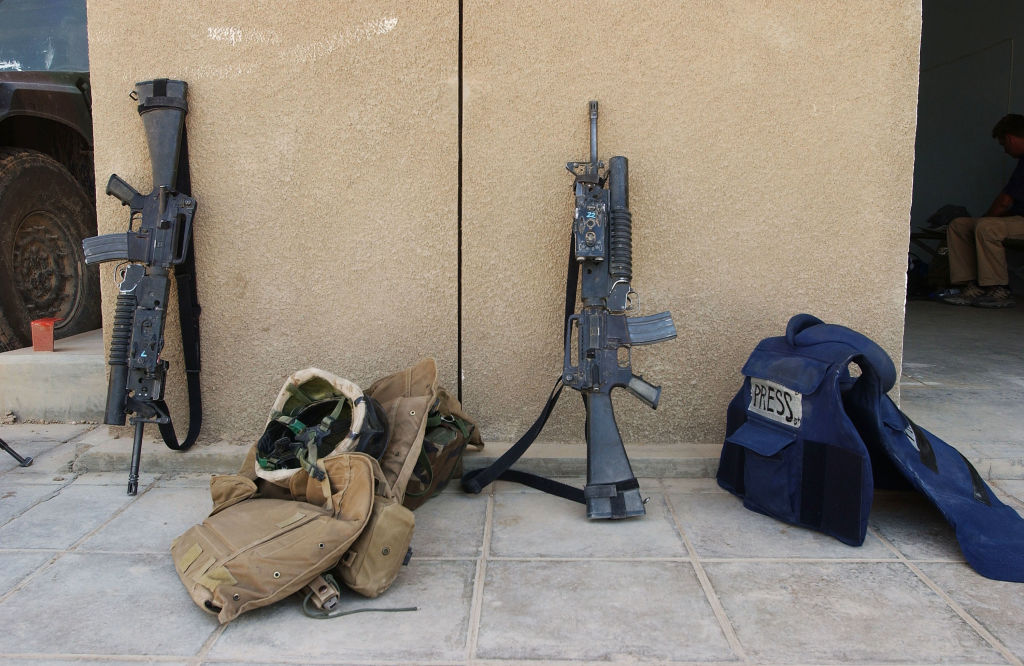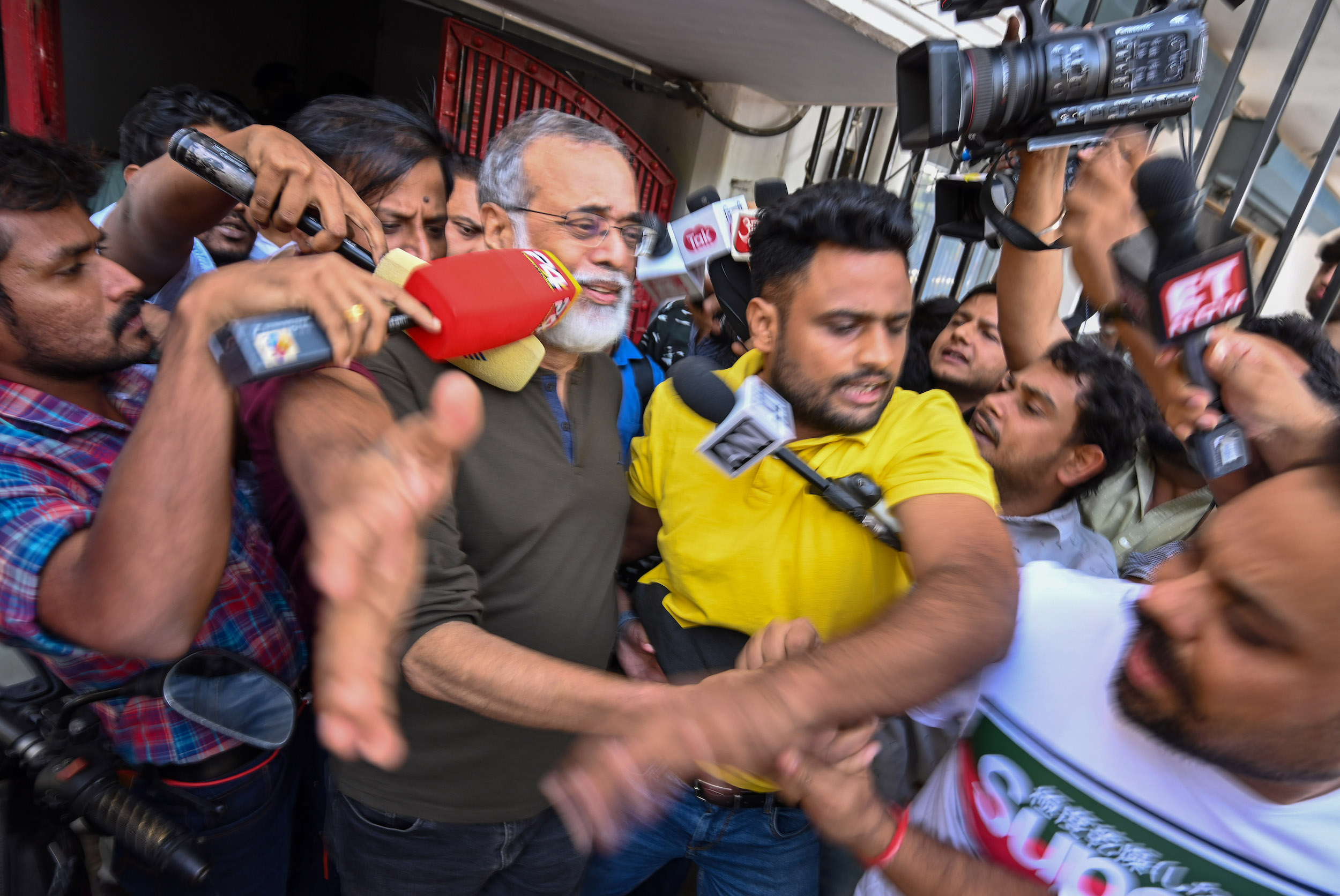كل صباح، عندما كانت الجريدة تصلنا إلى باب المنزل، وندفع لقاء الحصول عليها بضعة دراهم، كانت معادلة "شراء الأخبار اليومية" تبدو بسيطة ومباشرة: ادفع مبلغا من المال مقابل الحصول على الأخبار لتقرأها بشكل يومي.
هذه المعادلة -إضافة إلى الإعلانات، والأسهم، والدعم الحكومي في بعض الأوقات- كانت كلها كافية لتواصل الجريدة إنتاج الأخبار لقرائها.
اليوم، تكاد هذه المعادلة تختفي من الوجود. فلم تعد الجريدة تصل إلى باب المنزل، ولم نعد ندفع دراهم مقابل الحصول عليها. استهلاك الأخبار اليوم أصبح مختلفا: آلاف المواقع الإخبارية على الإنترنت، ومئات الآلاف من الصفحات على مواقع التواصل الاجتماعي أصبحت تمطرنا يوميا بالأخبار من كل حدب وصوب. نسبة كبيرة من تلك المنصات مجانية، أي أنه بإمكاننا قراءة موقع كامل بكل أخباره ومقابلاته وتغطياته وتقاريره الاستقصائية من دون دفع قرش واحد.
البعض يفضل متابعة الأخبار التي تهمه عبر منصات إلكترونية مثل Google News أو Flipboard أو تطبيقات مثل "نبض" و"تيلغراف الإخباري". والبعض الآخر يفضل متابعة ما تنشره المؤسسات الإخبارية عبر صفحاتها مثل "فيسبوك" و"تويتر" وغيرهما.
حتى إن هؤلاء الذين يقرؤون الأخبار من خلال مواقع التواصل الاجتماعي لم يعودوا -في كثير من الأحيان- يدخلون الروابط لقراءة الأخبار كاملة من الموقع مباشرة، ما دفع بعض المؤسسات الإخبارية إلى نشر الكثير من المواد الإخبارية كاملة على هذه الحسابات.
السؤال الآن: كيف تحقق المؤسسات الإخبارية عائدات مادية وأرباحا إن كانت تقدم منتجها الأوحد والأهم عبر هذه المنصات مجانا؟
السؤال كان ولا يزال موضوعا للنقاش والجدل، خصوصا أن تغير طبيعة استهلاك الأخبار في الآونة الأخيرة، كبّد بعض المؤسسات الإخبارية خسائر هائلة، ما دفعها إلى الإغلاق، ولا سيما خلال جائحة كورونا.
وفقا لدراسة بعنوان "خسارة الصحف وقرائها" للباحثة بيني أبيرناثي، أغلقت أكثر من 1800 مؤسسة إخبارية صغيرة ومتوسطة أبوابها منذ عام 2004. ويعود السبب الرئيسي إلى توجه القراء إلى الفضاء الإلكتروني لقراءة الأخبار، وعدم وجود نموذج استثماري واضح داخل المؤسسات الإخبارية يجعلها تحقق أرباحا مادية بشكل مستقل.
من هو الرابح الأكبر ؟
وفقا لدراسة أجراها تحالف المؤسسات الإخبارية، حققت شركة غوغل 4.7 مليار دولار عام 2018 من عائدات المواد الإخبارية. وقالت الدراسة: "بالنسبة لغوغل، تعتبر الأخبار عاملا أساسيا في دفع المستخدمين إلى التفاعل أكثر مع منتجات الشركة. ويتراوح حجم المحتوى الإخباري عند البحث على غوغل بين 40 و60 في المئة، وكل هذا من دون أن تدفع الشركة العملاقة أي فلس لهذه المؤسسات".
إذا، هل على المؤسسات التقنية العملاقة أن تدفع مقابل الأخبار أو يمكن أن تصبح هي المسيطر في سوق النشر الإخباري؟
قبل الحسم في الإجابة على هذا التساؤل المهم، علينا الإضاءة على حدثين مهمين متعلقين بهذا الموضوع، وقَعا بداية هذا العام:
الحدث الأول: إصدار أستراليا قانونا جديدا يحمل اسم News Media Bargaining Code، تقوم الشركات التقنية بموجبه بالدفع للمؤسسات الإخبارية مقابل نشر محتواها أو حتى نشر رابط لهذا المحتوى. هذا القانون أيضا يحتم على الشركات التقنية إعطاء المؤسسات الإخبارية إشعارا بتغيير أي خوارزميات تعتمدها قبل التغيير الفعلي بـ 28 يوما. القانون أثار عاصفة كبيرة وقوبل برفض من شركات مثل غوغل وفيسبوك، التي حظرت نشر أي أخبار على صفحاتها من مؤسسات إخبارية أسترالية، قبل أن تتوصل لاحقا إلى اتفاق مع الحكومة في أستراليا.
الحدث الثاني: في منتصف فبراير/شباط الماضي، قال رئيس شركة مايكروسوفت، براد سميث، في تدوينة نشرت على الموقع الرسمي للشركة: "الصحافة المستقلة مهمة جدا لمجتمعاتنا الديمقراطية، والتغيرات التي حصلت خلال السنوات الأخيرة في طريقة استهلاك الأخبار، جعلت المؤسسات التقنية تستحوذ على الكعكة بأكملها، من دون أن تحصل المؤسسات الإخبارية على أي عائد مادي مقابل ما تنتجه". وتبنى سميث الخطوة الجديدة في أستراليا مؤكدا أن هذا هو ما تحتاجه الصحافة في زمننا الحالي، حتى تكون قادرة على الاستمرار.
لنعد إلى سؤالنا: هل على المؤسسات التقنية العملاقة أن تدفع مقابل الأخبار أو يمكن أن تصبح هي المسيطر على سوق النشر الإخباري؟
أعتقد أنه على المؤسسات التقنية العملاقة، التي تحقق الأرباح الهائلة من الأخبار والتقارير وغيرها، أن تدفع مقابل عرض هذا المحتوى؛ لأسباب عدة، نستعرضها في السطور التالية:
● القصة الخبرية هي منتج وخدمة عامة: للأسف الشديد، حتى يومنا هذا، يتم التعامل مع الأخبار على أنها خدمة عامة مقدمة للناس حتى يعرفوا ما يدور من حولهم. لكن هذه المسلمة يجب أن تتغير. يجب أن نبدأ بالتفكير بالمادة الخبرية كمنتج يمر بمراحل الإنتاج المختلفة ما بين الفكرة، والتحضير، والكتابة والتصوير والنشر وغيرها. يتمظهر المنتج الصحفي في أشكال متنوعة، ويستهدف شرائح مختلفة من الجمهور. فلماذا لا نتعامل معه ماديا كما نتعامل مع أي منتج آخر؟ عندما ننطلق من هذه الفكرة، سنجد أن الشركات التقنية تحقق أرباحها على ظهر الآخرين ممن ينتجون المحتوى الصحفي.
● خوارزميات الشركات التقنية لا يجب أن تكون المسيطر الأول: في كل مرة يقوم فيها محرك بحث أو موقع اجتماعي بتغيير الخوارزميات، تحدث فوضى داخل المؤسسات الإخبارية، لأن طريقة عرض الأخبار ووصولها للجمهور تتأثر (بالمجمل سلبيا وليس إيجابيا). يؤثر ذلك -بلا شك- على المصداقية، وقد يساهم في سرعة انتشار الأخبار الكاذبة، وقد يدفع إلى تحيز المستخدم وعدم اطلاعه على كافة ما يجري من حوله. لذلك، فإن أي اتفاق بين الشركات التقنية والمؤسسات الإخبارية يجب -أيضا- أن يتضمن نقاشا حول الخوارزميات؛ لأنها أصبحت المتحكم الأول في استهلاكنا للمحتوى على الإنترنت.
● الدور المجتمعي للشركات التقنية: جزء من عمل هذه الشركات يجب أن يركز -دائما- على النهوض بالمجتمع وأفكاره وتطلعاته، من خلال دعم الصحافة المستقلة المحلية التي تزيد من وعي الناس وتدافع عنهم باسمهم. إن دعم الشركات التقنية للمؤسسات المحلية -في هذه الحالة- يعتبر عملية تبادلية؛ إذ يتمثل في الحصول على المحتوى الإخباري مقابل الدعم المادي.
● الشركات التقنية يجب ألا تسيطر على سوق النشر: البعض قد يقترح أن تشتري الشركات التقنية المؤسسات الإخبارية لتصبح جزءا منها. شخصيا لا أرى هذا الاقتراح منطقيا؛ لأنه في النهاية يشتت توجه المؤسسات التي لطالما تعرّف عن نفسها بأنها "مؤسسات تقنية" وليست "مؤسسات إعلامية".
خلاصة الحديث، أؤمن بأن الجانبين، المؤسسات الإخبارية والشركات التقنية، في عصرنا الحالي، يكمل بعضهما بعضا، ولا يمكن لأي منهما العمل دون الآخر. لكن الشكل الحالي لهذه العلاقة ظالم للصحافة وللصحفيين، وإذا ما استمر على ما هو عليه الآن، فقد نرى مزيدا من غرف الأخبار الصغيرة والمستقلة تغلق أبوابها. وعلى المدى البعيد، ستخسر هذه المنصات ومحركات البحث ما يعرف بـ Quality Journalism، أو الصحافة ذات الجودة العالية، مما سيساهم في انتشار المحتوى المتطرف والمزيف. لذا ستكون خسارة الشركات على المدى الطويل أعمق وأكبر؛ لقناعتي دائما بأن الجمهور لا يمكن استغفاله، وأن بإمكانه التمييز بين المحتوى الذي يحترم عقله وغير ذلك من أشكال المحتوى السيئ.
المراجع
Hare, Kristen (2021) The coronavirus has closed more than 60 local newsrooms across America. And counting https://www.poynter.org/locally/2021/the-coronavirus-has-closed-more-than-60-local-newsrooms-across-america-and-counting/
Abernathy, Penny , The Loss of Newspapers and Readers, https://www.usnewsdeserts.com/reports/expanding-news-desert/loss-of-local-news/loss-newspapers-readers/
Cave, Damien (2021) Google Is Suddenly Paying for News in Australia. What About Everywhere Else? https://www.nytimes.com/2021/02/17/business/media/australia-google-pay-for-news.html
Smith, Brad (2021) Microsoft’s Endorsement of Australia’s Proposal on Technology and the News
Benton, Joshua (2019) That “$4.7 billion” number for how much money Google makes off the news industry? It’s imaginary https://www.niemanlab.org/2019/06/that-4-7-billion-number-for-how-much-money-google-makes-off-the-news-industry-its-imaginary/
























![A demonstration against Israel's war on Gaza on Paulista Avenue in São Paulo on November 4, 2023, draws attention to the deaths of children while the media focuses on the war against terrorists. [Photo: Lina Bakr]](/sites/default/files/ajr/2024/Picture1.png)



















